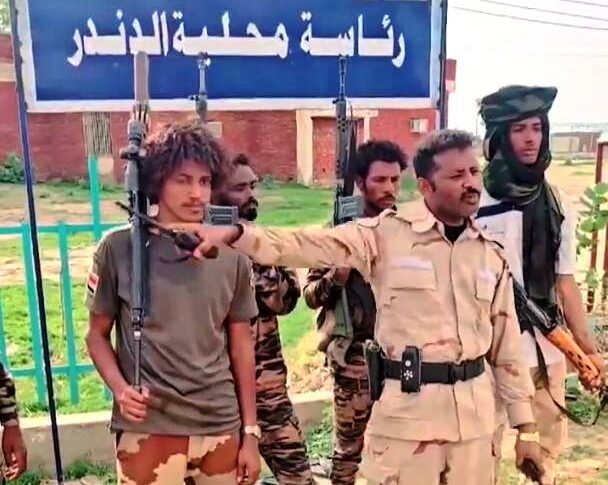RSF looting threatens agricultural season in Al-Dinder, southeast Sudan

RSF commander Abdel Rahman Albishi speaks outside the building of Al-Dinder locality on June 5, 2024
July 14, 2024 (AL-DINDER), – The Al-Dinder Emergency Room in Sennar State, southeast Sudan, reported Sunday that the Rapid Support Forces (RSF) have seized agricultural equipment, seeds, and fertilizers from villages in the region, raising concerns about the potential failure of the upcoming agricultural season.
The RSF took control of Al-Dinder on July 1st but was briefly ousted by the Sudanese army. However, the RSF swiftly recaptured the city on July 5th, forcing the army and its allies to retreat to Gedaref State.
In a statement to Sudan Tribune, the Room accused the RSF of using “intimidation, beatings, and killings” to confiscate tractors and equipment from farmers across Al-Dinder locality. An estimated 200 tractors have been seized and are reportedly being stored in the villages of Al-Farish and Kamrab, west of Al-Dinder. These villages are primarily inhabited by members of the Rizeigat tribe, the same tribe from which many RSF leaders and soldiers hail.
The Room further alleges that the RSF has looted agricultural seeds, fertilizers, and pesticides from villages and storage facilities, jeopardizing the upcoming harvest. They also claim that Kamrab and Al-Farish have become operational bases for the RSF, used for launching raids and storing stolen goods from Al-Dinder and its surrounding villages.
Al-Dinder is home to approximately 200 villages that rely on herding, trade, and agriculture. However, many residents have fled due to RSF violence, including killings, looting, sexual violence, and forced displacement. The ongoing lack of electricity, water, and communication services, combined with soaring prices for essential goods, are exacerbating the humanitarian crisis in the region.
Last Saturday, the Emergency Room warned of a rising death toll among vulnerable populations, including those with chronic illnesses, the elderly, and children, due to the closure of hospitals and health centres damaged in the conflict.
